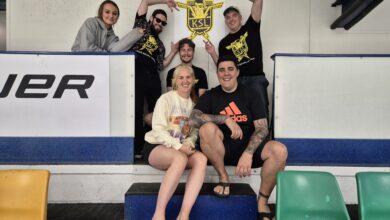From Saving Pucks to Saving Souls
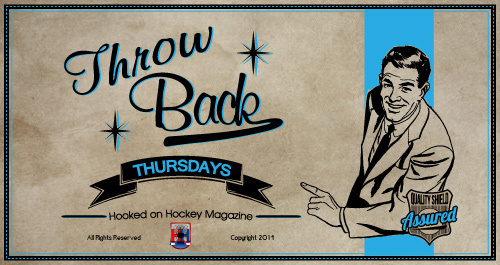
There is a clear point in time when ex-Philadelphia Flyer and National Hockey League (NHL) goaltender Bob Froese’s life splits into two separate stories. Nov. 10 1985 was the day Froese’s competition, friend and teammate, Pelle Lindbergh, had a couple drinks and decided to drive.
He crashed his car into the back of an elementary school in Pennsylvania.
Lindbergh never recovered and at 27, Froese says, he became “a different person.”
“From that day in my life on, I was changed.”
Froese, a 55-year-old St. Catharines native and pastor of Faith Fellowship Church in Clarence, NY, says that before the accident he considered himself a hockey player who professed Christianity. Afterwards he became a Christian who played hockey.
That’s not to say Froese didn’t feel the calling of his religion beforehand. In fact, he had felt the call as a child.
“I have here in my study at the church a drawing I drew when I was five years old. I’m holding a bible with my arms outstretched and my teacher wrote on the top, ‘wants to be a preacher.’”
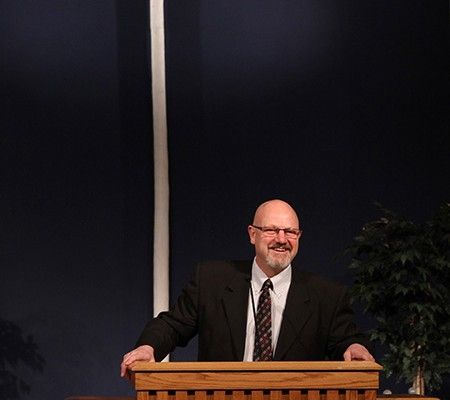
The accident was far from the first tragic memory in Froese’s life. His parents divorced when he was a young child and his dad move to Calgary.
He says the absence of his father almost halted his hockey-playing days as a child, but he had other male mentors in his local church who encouraged him.
A few years later, winning the all-Ontario tournament at 15, was the first example of hockey and religion intersecting in his life. Froese had to make a decision that ultimately was the first of many that culminated in his current pastoral role.
Froese told his coach at the time, Bob Craig, he would be missing a game in order to be baptized at his Protestant church in St. Catharines.
“I remember him wanting for me to be truly committed to the team and saying if I chose to do this I might be forfeiting my spot on the team. I remember saying that’s the way it’s going to be, I wasn’t going to back out of being baptized. I remember the date, Dec. 2 [1973] like yesterday. I always had more of a relationship with Jesus Christ.”
Although religion won out in this case, Froese kept his spot on the team and began down a path that saw hockey become his “consuming interest” until that fateful day in November of 1985.
Froese remembers hockey beginning to take over and how it was affecting all aspects of his life at the time.
“I graduated high school as a 15-year-old so it’s either go to college or play hockey. Back then [if] you went to college – I had a few offers to go to college and university in the States – but at that point, at that time, you’d be kissing your NHL career goodbye.”
Skipping out on an education is something that negatively affects a lot of people and the opportunities they have, but not Froese. After two years apiece with the Ontario Hockey Association’s St. Catharines Black Hawks and the Niagara Falls Flyers – the St. Louis Blues in the 1978 NHL amateur draft selected him in the 10th round, 160th overall.
Froese bounced around for a couple seasons in the American Hockey League and the International Hockey League and was cut loose by the Blues in 1981.
He signed with the Flyers in the 1982-83 season and his goaltending career took off.
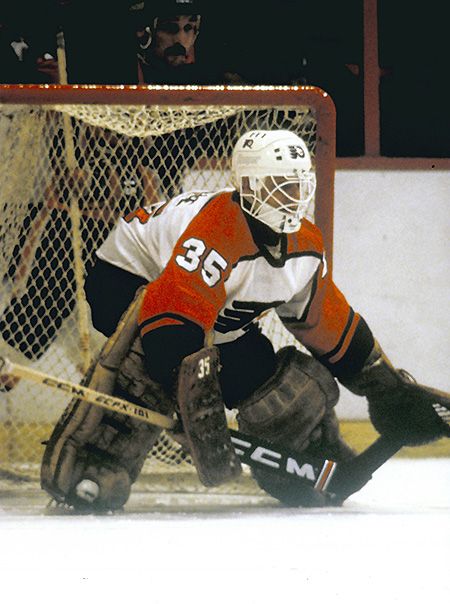
This is also where he first met Lindbergh. They shared similar lifestyles and became friends despite battling each other for playing time.
Around this time is when Froese’s religion really took a backseat, partly because of the partying atmosphere of being a hockey player in a room full of young, testosterone-filled men nd partly because of the violence surrounding the team he played for, who were known as the Broad Street Bullies.
“The one thing I knew growing up in the Philadelphia Flyers system is that – well by the time I got there I was pretty much brainwashed into thinking this is the way you play and this is the way you win. It’s still a man’s sport, they still wear hockey pants instead of hockey skirts.”
Froese was playing hockey first and being a Christian second.
“What I would say is that I put it on the backburner. I had a personality. I was fun. I enjoyed being with the guys. What I held dear earlier in life I would’ve moved to the backburner just to be one of the guys.”
He lived and played this way for a couple years until the night everything changed. At 5:41 a.m. on Sunday, Nov. 10, 1985 Froese, his wife, and his children were about to get up to go to church as they did most Sundays. At the same time, Lindbergh drove his new Porsche into the brick wall of an elementary school after having a couple drinks. He wasn’t scheduled to practice the next day.
Froese says he didn’t realize the seriousness of what was happening at first.
“She [Froese’s wife] came and got me as I was putting down one of the kids in the nursery. [She] said, ‘Kim Poulin is on the phone.’ Kim Poulin is (Flyers’ captain) Dave Poulin’s wife. She said, ‘You[‘ve] got to get to the hospital. Pelle’s been in a bad car accident and he’s looking pretty bad,’ and I remember travelling to the hospital thinking, ‘Now the net’s all mine.’”
Lindbergh, Vezina Trophy winner as the NHL’s top goalie and who had led the Flyers to the Stanley Cup finals the previous year, was brain dead. Two days later, on Nov. 13, 1985, his parents took him off the respirator keeping his body alive. He was 26.
He knew he had lost a good friend, but it really only hit him a few days later at a drill in practice that required two goalies. He was the only one there.
He recounts how on the Tuesday before the accident a televangelist visited the Flyers’ locker room. The preacher singled him out in the crowded room asking, “What does it mean to be Christian?” Froese felt “embarrassed” the televangelist would ask him when he knew his beliefs were on the “backburner.”
The accident changed that.
“I remember that day, promising God that if anyone ever asked me what it meant to be Christian I would tell them.”
Froese finished the season winning the William M. Jennings trophy (fewest goals allowed by the goalie(s) playing a minimum of 25 games) and played another half season in Philadelphia before being traded to the New York Rangers where he played until 1990, when a shoulder injury forced his retirement.
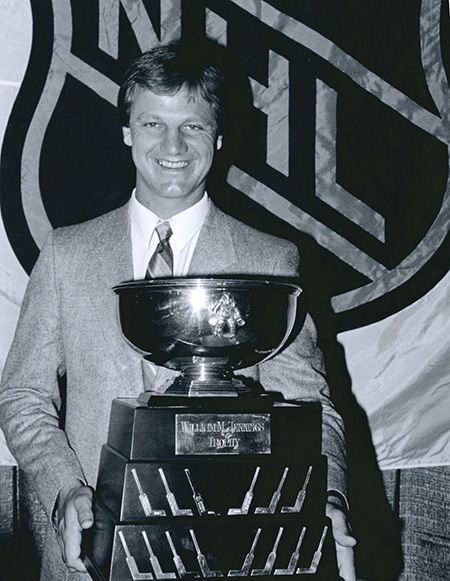
“I remember he said that’s the first time he’s ever told a wife, ‘He’ll never play again’ and the wife says, ‘Yippee.’”
At 32 years old, Froese’s NHL goaltending career was over. He knew “nothing else” and also that he hadn’t made enough money to live on forever. He tried his hand at helping coach with the Rangers for a while, and eventually wound up with New York’s other team, the Islanders, as a goaltending coach for two seasons.
But, he began getting the itch to help people in other ways. It was the first time he thought about becoming a pastor. That itch grew unbearable and Froese says he knew. His first call was to the Islanders’ then-head coach Mike Milbury.
“I had to call Mike Milbury and tell him what I was doing and after about 45 minutes of the most awkward silence I’ve ever had, he asked how much was the church offering me. He thought it was a negotiation ploy.”
It wasn’t a ploy. Froese spent the next few years as a student again, earning his bachelor of science degree in religion from Liberty University in Lynchburg, Va., then his master’s degree in religion from the Liberty Baptist Theological Seminary. Still not satisfied, he went on to earn a doctorate from Trinity Theological Seminary. Bob Froese was now Dr. Bob Froese.
“I thought my hockey career was going to be the epitome of my life and everything would be downhill from there. My top experience playing all those years in the NHL, I realize now was nothing but preparatory work for what I do today.”
Froese thought it would be hard to adjust to life as a pastor as he had “credentials from playing hockey, but no credentials as a pastor.” It didn’t stop him. He became pastor at Faith Fellowship Church in Clarence, NY where he is today.
Froese maintains his connections to the Niagara region too, as his wife and her family are from Niagara-on-the-Lake and his family is originally from Fonthill.
He is “in Canada at least once every two weeks,” and is happy when he sees the people at his old stomping grounds who helped him growing up.
As for being a pastor and its effect on how he views the violence and fighting in today’s NHL, Froese says it isn’t fighting the league has to worry about.
“In my opinion, when they put helmets on the players, the sticks came up. When I played, if a guy was going to go around and use his stick or if a guy was a dirty player of mouthy or whatever … there would come a day of reckoning where he would have to defend himself. I think that’s what it did. It kept the honest players honest. I’m not a proponent of someone who says fighting should be abolished from hockey, only because of the sport and the intensity of the sport.”
The influx of European players changed how the game was played, but he’s quick to point out it was only eastern European players he worried about. There was a “big difference between the Swedes and the Finns versus the Russians and the Czechs.”
“What I found with the good Canadian boys was that if something happened they were going to fight, they were going to get busy. But then the eastern Europeans came over, the Russians and the Czechs, and all of a sudden it was a different game.”
With some of the notoriety that athletes get off the ice, it’s hard to believe many would be open to a life of religious values and preaching. Froese agrees. He isn’t in touch with many of his former teammates.
“I’ll still get some Christmas cards but a lot of guys don’t want to be close friends with a pastor.”
Everything comes back to one decision by a 15-year-old kid with a dream.
“At that point, at 15, I remember [having to decide] whether I wanted to be a doctor or whether I wanted to be a goalie in the NHL and, obviously, well I’m thankful that I got to do both.”
This story is a reprint from the author’s former college paper, Niagara News, originally appearing in 2013 here.

